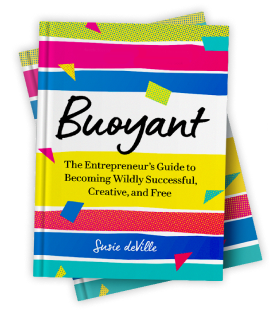Dismantling resentment can be challenging, because we don’t always notice when it has built up.
I met my client, Lauren, on the terrace of a swanky restaurant she chose for our first meeting. The day was warm and sunny, and it felt rejuvenating to be seated in the fresh air after a long winter cooped up indoors. Lauren arrived in a flurry of accessories…copious jewelry, a scarf tied at her neck, a jacket over her shoulders, and a hat adorned her. It was fun to watch her breeze into the restaurant.
She finished her phone conversation and placed her cell phone on the table. The screen was a spider web of cracks and fissures, the edges dinged.
“Sorry, I just had to wrap up that call with my team,” said Lauren. “We are inches from closing a huge deal with an investor, and there are tons of details to sort through.”
“Quite alright and totally understandable,” I said. “It is great to see you, and I’m excited about our session.”
Lauren settled in and looked around the terrace and exhaled. “Same here! I’m not even sure where to start. I feel like I’m sinking and no one can see that I’m drowning. It’s like I cannot confidently rely on my team, and it’s making me crazy. These are very talented, very capable people! And I have to constantly check-in and follow up to make sure they are doing what they are supposed to be doing. This is such a crucial time for us right now! How am I going to scale my business if I have to drag everyone along with me? Honestly, I’m inches from exploding, but I’m careful to keep a lid on it.”
It’s A Big Deal
As Lauren talked, her bedazzled fingers glided back and forth over the irregular surface of her phone. When she smiled, her eyes remained flat, emotionless.
“I’m sorry for rattling on,” she said. “Where should we start?”
I looked at her with compassion as I knew very well the waters in which she was flailing. I reached across the table, tapped her cell phone, and said, “Let’s start right here.”
Lauren’s first thought was that I was referring to the fact that she finished her call as she walked through the restaurant. “Oh, jeez, that was rude of me, wasn’t it?”
I replied, “I’m curious, when did you crack the screen on your phone?”
“Well, hmmmm, maybe last fall some time?” she answered.
Lauren had been using, tolerating, a phone with a screen that was so cracked that she could barely read it for months.
I smiled and said, “Here is your first assignment. Call your cell company right now and ask them to overnight a replacement to you. You can return the broken one in the box they send. It will take less than five minutes.”
Lauren shifted in her seat. “Now? Really? It’s not a big deal….”
“Yep, now. Happy to wait. And, yes, it’s a big deal. I’ll explain.”
Stacking Resentment
Once the new phone was on the way, I explained to Lauren that in the first few minutes of our being together she had revealed she was an Olympian Resentment Stacker. She was tolerating things that did not work (a tool she touched literally hundreds of times a day that was essential for her business) and staff members who weren’t doing their jobs. And rather than addressing the issues, she ignored them, pretending they didn’t exist. Pushing resentment down, down, down.
Keeping a lid on it, as she had said.
The things we tolerate, great or small, do not simply evaporate without side effects when we ignore them or stuff them. They are merely hidden from our view for a few moments, but we can still feel their presence, like a painful pebble in the bottom of our shoe, and know the slow erosion they make in our well-being, our confidence, our clarity, our seat of power. As a result, we suffer, as do our relationships, our creativity, and our businesses.
Most often, though, we’d rather soldier on, avoiding the dreaded, perceived conflict, never dismantling the resentment. Or, avoid taking the time to handle an issue, thinking we don’t have one minute to spare right now. We simply cannot stop what we are doing. We’ll get to it later.
Underneath those excuses, avoidance, and stacks of resentment is an insidious, amorphous, shape-shifting blob consisting of this thought: I don’t deserve better.
Dismantling Resentment: You Deserve Better
At some time or another, we all have had this thought. We all tolerate things, remain silent. Leave the broken things unattended.

Let’s take a few minutes right now and write down where you are stacking resentment. Ask yourself these questions:
1) What physical objects in my life need repair or replacement?
2) Which individuals in my personal life do I need to have a hard conversation with?
3) What is not running smoothly in my business? Who or what is the bottleneck?
4) Where am I secretly keeping score (personally and professionally)?
5) Who am I jealous of and why?
Once you have your lists ready, select something from #1 to handle. Dealing with repairing physical objects first will give you momentum and courage for the more sensitive, personal resentment stack dismantling work you are going to do.
Notice how you want to avoid even writing these lists. Fight back against the part of your brain that is telling you a big, fat lie. You absolutely deserve better. Prove your brain wrong.
When Lauren ended the call with her cell phone company, she placed the phone on the table and stared at the screen. “That was so easy to handle! I cannot believe I have put that off. That I’ve been squinting through cracks for months to read emails and texts. Every single time I did it, it made me angry. And I still did nothing. Wow.”
I smiled and said, “Now, let’s talk about your team.”










